Recipients of 2025
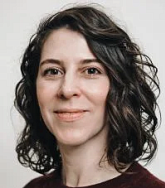
Lesley Jo Weaver
Associate Professor, Global Health Program, Product Design, Schnitzer School of Global Studies and Languages, College of Arts and Sciences
The Homelessness Policy Health Research Group, comprising undergraduate and graduate research assistants, lab managers, faculty colleagues, and research volunteers, lauded her direction of the team’s “work on an interdisciplinary NSF-funded project addressing stress, health, and resilience among people experiencing homelessness.” Professor Weavers’ mentees conveyed how she “practices responsive, reciprocal, and adaptive mentorship with every member of our team and has opened doors for our future that we never imagined possible. The actions she has taken to listen to and acknowledge our struggles, embrace our strengths, and make space for our ideas has been a crucial factor in our development as confident and capable researchers and as better people. Dr. Weaver’s investment in our growth goes far beyond what is expected or required of a faculty mentor, and she has helped us build networks that will set us up for success after our time at UO.” The nominators underscored Professor Weaver’s responsive care and compassion: “Our research focuses on working directly with people who are experiencing homelessness in the Eugene community. This work is emotionally heavy. While we are not the center of this work, our participants are, it can be incredibly emotionally taxing to operate in this space, and it’s easy to become overwhelmed at the magnitude of the experiences of this community [and one’s] mental health and well-being [can] suffer. Unsure how to handle this reaction, [mentees] turned to Dr. Weaver, asking her how one deals with the incredibly heavy nature of the things we see and hear about in our work. She replied by sharing her own story of first reacting to the pain and suffering of others in her research. After a period of sharing and discussion, Dr. Weaver concluded that the heavy feelings that accompany witnessing others’ suffering never fade, but talking and sharing in community is one of the best ways to acknowledge and manage these feelings. In a world of academia that can often be sterile and emotionless, conversations like these demonstrate how Dr. Weaver never fails to practice empathy, responsively meeting her students where they are and accompanying them as they learn and grow.”

Ingacio López Busón
Assistant Professor, School of Architecture and Environment, College of Design
The Bachelor of Landscape Architecture 2025 cohort nominated Professor Busón in recognition of the “critical niche he has come to occupy within the network of the department, responding to the need for professors who teach with a focus on landscape design technology as it relates to an ever-changing job market and industry standards; and support students seeking help with spatial technology and insight into the competitive world of high-profile landscape design on an international scale.” His nominators extolled Professor Busón’s responsive mentorship, “He has a reputation for being tough and extremely candid with students, but nearly everyone who has worked with him will attest that it comes from a place of genuine affection and confidence in our abilities, and he is well loved among the student body. He is responsive in a very literal sense – as in that he makes himself extremely available to students at all hours. Design studios mean late nights and last-minute revisions for many students, and students are often surprised by the expediency with which Ignacio was able to respond to messages or provide feedback on a project draft, regardless of the hour—often questioning when he was giving himself time to sleep or eat.” One mentee recounted their experience with his reciprocal mentorship, “He sees his relationships with students as opportunities to help each of us push the boundaries of landscape architecture and create something unique and valuable. I had the pleasure of completing a 2024 Summer Undergraduate Research Fellowship with him. From the beginning, he went out of his way to support my interests regarding the fellowship and insisted that I shape the experience to be the best possible fit for myself. I chose a project focus (an ecological survey of Amazon Creek). With Ignacio’s encouragement, I continued this focus, using the research from my fellowship to support my two-term terminal design studio project, also on the creek. Ignacio remained an invaluable mentor for me throughout this nearly year-long process, while also introducing me to other local experts and arranging opportunities for me to attend exclusive site visits, thus extending my network of mentorship. In this way, our work together was truly symbiotic: I was supported to create a comprehensive final project that I feel truly proud of, and I am happy to have been able to contribute to his own scholarship on the creek and to anyone else who may work on related projects in the future.”
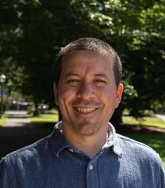
Raoul Liévanos
Associate Professor, Director of Undergraduate Studies, Department of Sociology, College of Arts and Sciences
The Sociology Honors cohort nominated Professor Liévanos in recognition of his “exceptional mentoring for all of us throughout the process of writing our undergraduate theses.” They affirmed that “Throughout our thesis writing process, from the IRB to the literature review and the writing process, Professor Liévanos has always taken the time to give us feedback. While our class had a wide variety of different projects, he recognized the differences between each project, with their variations between methods, literature, and theory, and is always there to readily offer flexible support and guidance.” Students affirmed that “Professor Liévanos holds strong reciprocal relationships with all of his mentees and balances them as equals to himself, promoting respect between himself and mentees, but more importantly, developing trust in the relationship. He can trust that mentees will challenge him, take his advice, and show up for him, just as mentees can trust that Dr. Liévanos will challenge them, take their advice, and show up for them in return. It is impossible to meet Professor Liévanos and not be struck by the incredible care and dedication he has for his students. Our respect for him transcends beyond words, and there is no individual more worthy of this award than Professor Liévanos.” His mentees also credited Professor Liévanos for his commitment to their academic and career development: “he has helped us all make invaluable connections within our field, from helping us find our primary thesis advisors to introducing us to other professors in the specific fields we are interested in. His strengthening of our connections to academia went beyond just the interpersonal, and included other opportunities, such as research funding and personally leading us through the process of applying for research grants, and showing us who to reach out to and how.”
Recipients of 2024
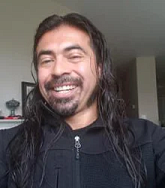
José Meléndez, Assistant Professor, School of Planning, Public Policy and Management, College of Design
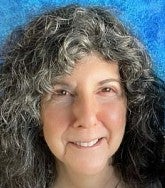
Rachelle (Riki) Saltzman
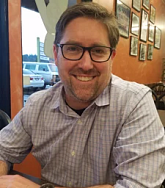
Josh Snodgrass
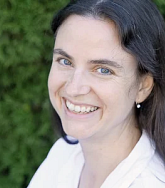
Dasa Zeithamova, Associate Professor, Neuroscience, Psychology, College of Arts and Sciences
Recipients of 2023
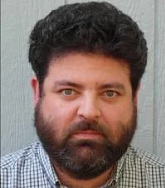
Nicholas Addington, Associate Professor of Mathematics, is deeply committed to the department’s new undergraduate summer research program for UO math majors, which is currently funded by an NSF RTG Grant, “Combinatorics, geometry, representation theory, and topology.” Several current and former student recommenders recognized Professor Addington for his innovative pedagogy and developmental mentorship that inspired them to pursue major and career pathways they had not previously considered. One recommender reflected on how their experience in Professor Addington’s “hands-on math lab during my very first term on campus took an experiential approach to learning that allowed us to play around with combining math and code in a self-directed manner. I still remember putting in way more hours than I needed to a Python program that drew fractals just because I thought the assignment was so cool. Later, Dr. Addington stopped me in the hall at Fenton to tell me that he really admired the work I put into his class. As a very new freshman, the encouragement really stuck with me.” This recommender also shared that approximately two years later “during the peak of the of the COVID-19 pandemic I was looking to get my feet wet in the world of math research and I contacted Nick to see if he still remembered me from that very first math class I had taken with him. He replied saying he remembered me well and went on to go above and beyond working with me on a summer research project in the field of algebraic geometry full of highlights in my academic career which included proving a theorem together with Nick on a blackboard and sending code snippets back and forth with the researcher who discovered the topic we were working on.” Another thesis advisee shared, “I am incredibly grateful for the massive time investment he has made. With his guidance, I have been able to explore fascinating mathematical topics that would be completely inaccessible otherwise.”
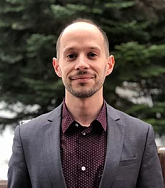
José Cortez, Assistant Professor of English, serves on the Faculty Advisory Committee for the Undergraduate Research Opportunities Program (UROP) in the Office of the Vice President for Research and Innovation. He is also an affiliated faculty member with the Center for Latino/a and Latin American Studies (CLLAS), Digital Humanities, Disability Studies, and Latinx Studies. Student nominators discussed the bridge from Professor Cortez’ dynamic classroom learning environment to working with him on undergraduate research projects. A former undergraduate mentee of Professor Cortez and current UO graduate student wrote in their nomination, “Small classes can be intimidating. Entering a class for the first time, you never know what you’re going to get--how will you measure up? How hard will you be required to work? What will the professor be like? And so on. In my almost five years here at the University of Oregon, one professor has taken these first-day anxieties and made them into dynamic, informative, empathetic, challenging, and deeply thought-provoking classrooms like no other. This would be Professor José Cortez. I have taken five of Dr. Cortez’s classes, and each time this classroom transformation occurred. Before, during, and after the height of the pandemic, I might add. The closest academic bonds I have had with peers all trace back to Dr. Cortez’s classes. This is due to the combination of non-negotiable respect, openness to being wrong, and willingness to debate that Dr. Cortez institutes and maintains. After having taken three of his classes, Dr. Cortez reached out to me to ask if I would work as a research assistant for his forthcoming book on borders and border patrol. During the fourteen months that I worked for Dr. Cortez, I learned invaluable skills that I have used in every class and job I have had since. Most notably, I learned how to look at a series of historical events and conduct research in a way that enables an understanding of what narratives were and are being told about the subject.”
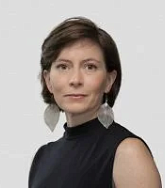
Maria Fernanda Escallón, Assistant Professor of Anthropoly. Escallón's current research traces how the declaration of cultural practices of Afro-Latino communities as “intangible cultural heritage of humanity” may further marginalize already vulnerable community members and leave structural racial inequities intact. Professor Escallón was a 2021–22 Wayne Morse Center for Law and Politics Resident Scholar. Students recommenders cited Professor Escallón’s dedication to her mentees’ holistic success and wellbeing. One of Professor Escallón’s mentees testified that “she has been instrumental in my success as an undergraduate researcher and aspiring anthropologist. In serving as my faculty mentor for several undergraduate research projects, she has supported my academic and personal endeavors along every stage of my short undergraduate tenure at the University of Oregon, allowing me to develop considerable research experience and helping me win several grants and awards to support my ongoing work. Beyond her academic, professional, and logistical support, she has also proved herself to be a caring and considerate person whose interest in my success and wellbeing extends far beyond the purview of academia. Thanks to Professor Escallón’s outstanding mentorship I was able to actualize my dream of conducting serious ethnographic research as an undergraduate anthropologist. Where others said my goals were too ambitious, Professor Escallón encouraged me to shoot for the stars. So I did—and it worked. Shortly before my return to Eugene after three months abroad in the field, Professor Escallón wrote to me: ‘It’s been an absolute pleasure reading your work this summer seeing you grow into an ethnographer.’ While the experience was transformative indeed, I could not have done it without her expert mentorship. My future academic and professional career as an anthropologist was built on the foundation of skills, knowledge, and professional and personal ethics that she helped lay down.”
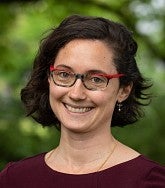
Laura Jeanty, Assistant Professor of Physics, is a member of the Institute for Fundamental Science specializing in experimental particle physics. Professor Jeanty’s group works on the ATLAS experiment at the CERN Large Hadron Collider and she has been a member of ATLAS since 2006. Her student recommenders acknowledged her confidence-building and inspiring mentorship. One mentee conveyed, “As a first-year physics student, I was initially extremely intimidated by high energy physics and believed that making contributions or working on research in the field as an undergraduate student would be nearly impossible. However, since joining Dr. Jeanty’s research group, I have felt a constant sense of support and guidance throughout my research journey. Dr. Jeanty’s support and encouragement has helped me to overcome feelings of self-doubt and her mentorship has been particularly meaningful to me as a female undergraduate student in physics, a field that has been historically male-dominated. She has provided a supportive environment where I feel comfortable asking questions and sharing ideas. From the first meeting, she ensured that I would be included in team meetings and discussions, and listened to my interests to develop projects that aligned with my research goals and aspirations. In addition to ensuring my inclusion in her research group meetings, she also connected me to the larger UO ATLAS Collaboration meetings, providing opportunities to learn about the projects and research being undertaken by other groups and graduate students. Dr. Jeanty has also helped me identify and apply to summer research programs, working closely to review and provide feedback on research proposals and write letter of recommendation. I have been able to receive a distinguished summer research award, which would have been impossible without her guidance and mentorship.”
Recipients of 2022
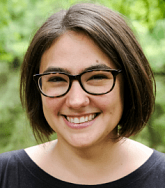
Sarah DuBrow, Assistant Professor in the Department of Psychology, was a champion for students underrepresented in higher education. The award recognizes the beloved professor, who introduced many students to the world of research and made them feel comfortable in the environment, which can be intimidating to newcomers. Her students recalled that DuBrow’s door was always open for her students, and the professor hosted workshops throughout the year focused on issues surrounding diversity in the field. To quote from one mentee, “I am nominating Professor DuBrow for this award because she was a constant supporter of not only my lab work, but of my personal growth. She provided a welcoming place for students of all backgrounds to learn about the research process and learn about one of the most interesting topics: the brain. Joining her lab and getting to know Professor DuBrow has been the best experience I have had while at the University of Oregon. She is the reason why I am doing research. She always answered all my questions with a smile and never made me feel lesser for not knowing an answer. She took a chance on someone when no one else would and helped that person grow exponentially. Professor DuBrow was such a kind, supportive mentor. If I can be half the mentor she was, I will consider that a huge success. I aspire to be a mentor and scientist of Professor DuBrow’s caliber."
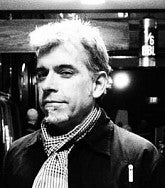
Steven Brence, Senior Instructor of Philosophy and a Pre-Law Advisor in the Department of Philosophy in the College of Arts and Sciences. He has helped students transition successfully to top graduate programs and career pathways. His works highlight the inclusion of diverse voices in his teaching, such as works from postcolonial theorists, African-American writers, and ecofeminist philosophers. One recommender described Professor Brence as a “committed and engaging teacher who excels in his beyond-the-classroom role of mentoring undergraduate student research and guiding students to realizing their academic ambitions in a way that directly supports their future goals.”
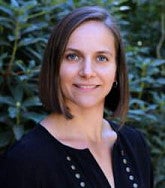
Maile Hutterer, Associated Professor in the College of Design’s Department of the History of Art and Architecture. Hutterer’s students have claimed they feel supported and challenged by their professor who creates a space where students from all backgrounds feel welcome and encouraged to pursue an academic career in Art History. Student recommenders affirmed that they “felt supported and challenged by Professor Hutterer who creates a space where students from all backgrounds feel welcome and encouraged to pursue an academic career in Art History . . . all students are taken seriously by her and she always evokes rich and critical discussion in her courses.” Another recommender shared how Professor Hutterer’s mentorship and ethic of care fostered a sense of belonging and connection that “has been a great contributing factor to staying at the University of Oregon” and thriving academically “despite fears and doubts.”
Recipients of 2021
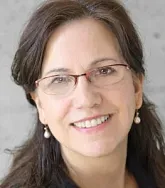
Dare Baldwin, Professor in the Department of Psychology is recognized for the outstanding record of “innovative undergraduate education and mentorship” since joining the University of Oregon faculty in 1992. The breadth and depth of Professor Baldwin’s mentorship has impacted hundreds of undergraduates in original scientific investigation, with one student noting, “She has developed a multi-pronged team-based approach that ensures that students immediately become connected not only with her, but with one another in the context of both small, project-focused teams and the team-at-large. Students acquire a range of skills during their involvement in Baldwin’s research lab, from knowledge about the research they are undertaking….” This award is co-sponsored by the Clark Honors College.
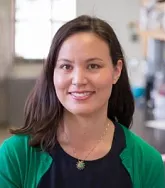
Diana Libuda, Assistant Professor in Biology and member of the Institute of Molecular Biology is recognized for commitment to individualized mentorship of undergraduates throughout their careers from initial exploration of research opportunities to their holistic development as thinkers, researchers, presenters, and authors in your lab to their graduate school applications and career pathways. One recommender shared, “Dr. Libuda has developed a highly effective mentorship system that enables graduate students and undergraduate students to formulate scientific questions and effectively communicate their research. Notably, Dr. Libuda recognizes that each mentee is unique.”
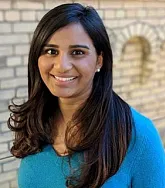
Marian Hettiaratchi, Assistant Professor, Phil and Penny Knight Campus for Accelerating Scientific and Impact and Department of Chemistry and Biochemistry. The award recognizes Professor Hettiaratchi for ethic of care, sense of trust, and innovative strategies for recruiting and mentoring students, as well as fostering a dynamic community of researchers, during the unprecedented challenges caused by the pandemic.
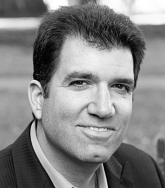
Michael Malek Najjar, Associate Professor of Theatre specializes in Arab-American Theatre and Performance, Directing, Playwriting, Contemporary Theatre and Performance is recognized for indefatigable dedication to helping students realize their visions for culminating academic and creative works as undergraduates. They speak to his empowering mentorship throughout the playwriting and performance processes, and importance of respecting cultural differences – “appreciating diversity and research historical records to find facts beyond fictions.”
Recipients of 2020
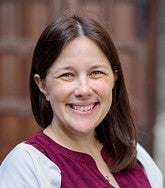
Melissa Baese-Berk, Associate Professor of Linguistics and Director of Undergraduate Studies is committed to mentoring students, inspiring them to be researchers and leaders, creating a supportive lab environment in which they can thrive. Professor Baese-Berk shepherds students through the complex process of becoming involved in a research project, and admired as a trusted mentor.
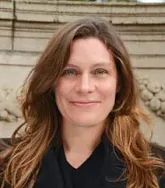
Yvonne Braun, Professor of International Studies and Associate Vice Provost for Academic Affairs. Professor Braun is lauded for holding extensive knowledge of research and theory related to gender, intersectionality, social movements and human rights, as well as taking on an active and committed role in the development of student projects and interests. The welcoming attitude, integrity in approaches to complex topics, and fostering empowerment are additional qualities so admired by students. This award is co-sponsored by the Clark Honors College.
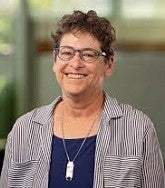
Judith Raiskin, Associate Professor in Women’s, Gender and Sexuality Studies and Director of Undergraduate Studies, is celebrated for serving as an amazingly committed mentor, community-builder and dedication to the LGBTQ+ student community. A student said of Professor Raiskin, “Many professors discuss having one mentor in their career that pushed them to continue their academic pursuits despite the barriers they experience, and Professor Raiskin is that person for me. I could not imagine a more capable or exemplary candidate for this award.”
Recipients of 2019
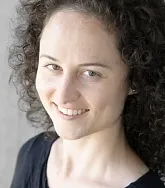
Caitlin Fausey, Assistant Professor in Psychology and Director of the Learning Lab, was awarded the CURE Faculty Research Mentor Award for her commitment to undergraduate research mentoring, with multiple nominations from current and former students that describe a truly amazing ability and commitment to mentoring students. The students describe Dr. Fausey as inspiring them to be scientists and leaders, encouraging and supporting them to develop independent research projects, and being deeply committed to their professional development.
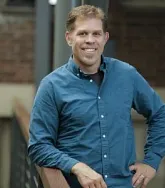
Chris Minson, Singer Professor of Human Physiology and Director of the Human Cardiovascular Control Lab, was awarded the CURE Faculty Research Mentor Award for his long-term commitment to undergraduate mentoring, which has spanned several decades. Nominated by both his department head, Dr. John Halliwill, undergraduate and graduate research assistants, notably his students describe Dr. Minson as inspiring them to become scientists, his creation of a supportive lab environment, and his dedication to helping students navigate the complex process of becoming involved in a research project.
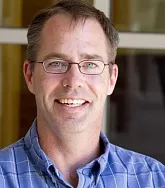
Mark Carey, Professor of History and Environmental Studies at the Clark Honors College, as well as Director of The Glacier Lab and the Environmental Studies Program, was awarded the CURE Faculty Research Mentor Award for a long-term commitment to his students, having been awarded the Outstanding Faculty Advisor Award in 2015. He was nominated by undergraduate Mackenzie Myers as well as several graduate students. The committee was extremely impressed by his commitment to and excellence in undergraduate research mentoring, in particular how successful Dr. Carey has been at connecting undergraduate and graduate student researchers, how his passion for his work is contagious, and how his outstanding mentoring has helped his students successfully compete for prestigious national scholarships. This award was co-sponsored by the Clark Honors College.
Recipients of 2018

Judith Eisen, Professor in Biology, was awarded the CURE Faculty Research Mentor Award for her long history of exceptional mentoring of undergraduate students, innovative pedagogy, training of graduate students and postdocs to be effective mentors, and leadership in developing and running critical and successful programs such as the Science Literacy Program and SPUR/OURS.
The Chemical Synthesis Group, a team composed of professors Michael Haley, David Johnson, Vickie DeRose, Michael Pluth, Ramesh Jasti, Darren Johnson, Ken Doxsee, and David Tyler was awarded the CURE Faculty Research Mentor Award for exceptional work with undergraduates over several decades. This group has mentored 499 researchers and this mentoring has led to 221 publications with undergraduates as co-authors. The team has had an incredible impact and has developed an impressive set of best practices for how to mentor students on research opportunities.
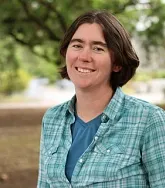
Samantha Hopkins, Associate Professor in Earth Sciences and Associate Dean of the Clark Honors College, was awarded the CURE Faculty Research Mentor Award for her exceptional undergraduate mentoring since she joined UO in 2007. Her moving nomination letter, written by 4 current undergraduates and an alumna, describes her has an exemplary mentor who has provided amazing opportunities to students to do meaningful research and who has helped students go on to distinguished PhD programs around the country. This award was co-sponsored by the Clark Honors College.
